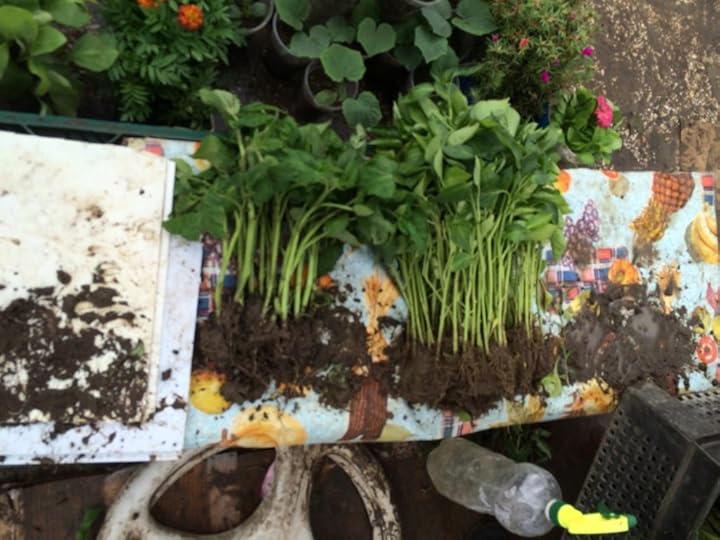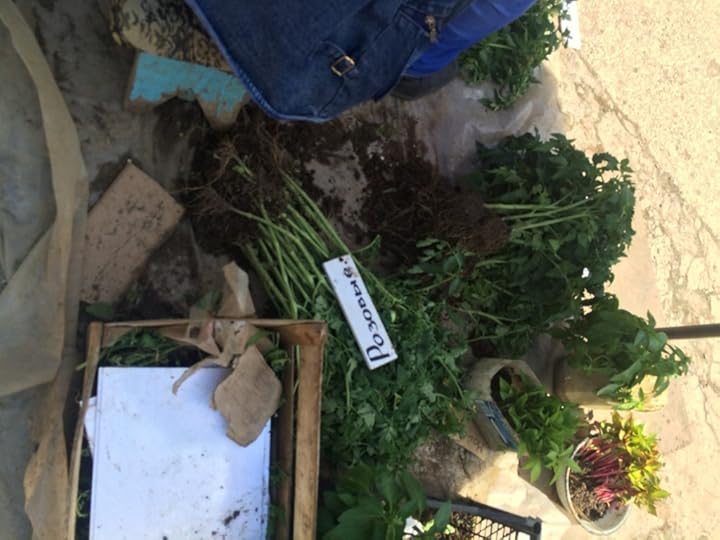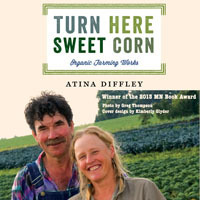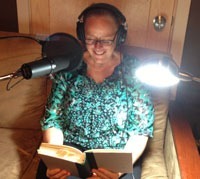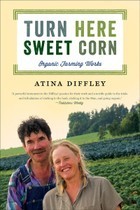Atina Diffley's Blog: What Is A Farm? A Synthesis of the Land, People, and Business., page 2
December 15, 2016
Organic and Sustainable Agriculture History Research Grants
This research grant, supported by the Wisconsin Historical Society located on the University of Wisconsin-Madison campus, provides access to the resources of the Wisconsin Historical Society’s Archives and other UW campus libraries and supports research and writing on the history of the modern organic and sustainable agriculture movement in the United States. The Wisconsin Historical Society’s Archives has assembled a growing collection of documentation on organic and sustainable agriculture topics including significant individuals and organizations working in the area of organic and sustainable agriculture, organic certification, state and national organic standards development, marketing organic produce, and other related subjects. An updated list of the organic and sustainable agriculture collections in the Wisconsin Historical Society’s Archives may be found here: http://bit.ly/2eqeAPt.
Successful applicants will receive an award of up to $2000 in support of travel, living, and/or research expenses. Awards must be used between April 1, 2017 and September 30, 2017 and recipients must reside in Madison during the period of their awards. Successful applicants are expected to present their research at an event to be held at the Wisconsin Historical Society in 2018 and will receive an additional $500 stipend for this purpose. Up to three (3) scholarships will be awarded.
Application
There is no special application form. Applicants are asked to submit a cover letter and brief research proposal not to exceed three pages. Applicants are also asked to submit a résumé or curriculum vitae. The proposal should emphasize the relationship of Wisconsin Historical Society and University of Wisconsin Libraries collections to the project and include the length and preferred dates of the visit. Send applications to:
Matt Blessing
State Archivist and Administrator
Division of Library, Archives, and Museum Collections
Wisconsin Historical Society
816 State Street, Madison, WI 53706
The deadline for applications is February 15, 2017. Successful applicants will be notified by March 15, 2017.

July 1, 2016
Seed Beds International!
Since my last post was on the how-to of field grown, bare-root transplant production—which was a common practice in the USA, pre-greenhouse plastic—I am excited to share these photos I recently took in a Kerch, Russia farmers market. The farmer was selling cabbage, pepper, and tomato bare-root transplants. I had a lively sign language conversation with him about his methods, and they appear to be universal.
To read the how-to-grow bare-root transplant article
© Atina Diffley 2016

November 10, 2014
Clean, Abundant Water and Optimism
When had I last stayed in a $45 hotel? I didn’t know they existed anymore. The decor was simple, and the sheets clean—no problem with that. The bath water however, was piss-yellow. I thought maybe it hadn’t been run for a while and might clear, or maybe the fire that the clerk told me had burnt half the rooms the night before had somehow left soot in the water lines. I opened the drain, turned the faucets full open, and left the water running while I brushed my teeth. When I returned, it was maybe? a little lighter? still yellow though. What the heck, it was hot, it was water, I was sticky-dirty-tired from traveling, and it was the only hotel in the Belington, WV area. I switched from bath to shower to minimize my skin imbibing whatever was coloring the water yellow, and hopped in for a quick rinse. In that moment, I felt big gratitude to Joy, the host at that day’s Wholesale Success training in Oak Hill WV, who had given me a gallon of water from her farm’s spring for drinking.
Clean, abundant water was the top criteria for Joy when she was searching for land to buy. She found it in a deep mountain spring. She has tested the water repeatedly for e-coli and nitrates and always the test has come back negative. She had brought water from her spring to make the coffee and tea for the training, and the gallon she gave me would get me through the next two days in the area.
Water quality and quantity is the most difficult challenge that comes up in the food safety trainings I provide through FamilyFarmed.org. Sufficient volume of water with low enough levels of pathogens to use for overhead irrigation, and water that is potable for drinking and produce washing, hand washing, and cleaning produce contact surfaces.
Joy advised me to stop at a Walmart on my two-hour drive to the next training. She laughed when she said that it might be the only place available to buy “fresh” food. I knew why she laughed; upon meeting her I had immediately recognized her as a kindred spirit. And I knew her suggestion that I stop at Walmart spoke volumes about the realities of the economy and food systems in the region; I would need to include a robust discussion on market development for the farmer-participants. West Virginia felt like a step back in time.
At the start of the next day’s training, most of the farmers raised their hands when I asked for a showing of who used organic methods. Then every up hand dropped when I asked who was certified. I was told that organic is referred to as the “O” word, as if it were dirty, and shouldn’t be said for fear of lost sales. In Minnesota where I live, the market broke free of that negative connotation decades ago after the 1990 Organic Production Act passed.
This set the stage to talk about marketing to values. We mapped the demographics of their customer base, and the psychographics—why they buy. We then had a fascinating discussion on why it is crucial to focus marketing on a customer’s personal values while educating them on the larger social and environmental values of local and organic—fundamental strategies for successful market development.
The people had a vibrancy I don’t see everyday. Their farms and markets were small. It was challenging to obtain a fair price to cover their cost of production and earn a modest living. Some counties were so poor they didn’t have a grocery. Yet the people were optimistic, and clearly loved growing food.
At the end of the day I knew the workshop had been successful when each participant shared a personal take-away from the six-hour training. People appreciated the emphasis on identifying potential risks and minimizing them in a scale-appropriate, economically-viable way. Several proclaimed a change in thinking about organic certification—they are now planning to get certified and use it as a tool to educate customers and develop their market. I also heard a shift in thinking from the concept that the FSMA Produce Rule is a witch-hunt on small farmers and that food safety doesn’t apply to them, to a commitment to work toward compliance with the eventual final rule even though they expect to be exempt. Smart thinking. All of us farmers are food handlers, handling someone else’s food.
But best of all, every hand went to their pen and wrote down National Sustainable Action Coalition to get information on commenting on the proposed supplement to the FSMA Produce Rule, and every hand went up, waving high in the air, when I asked, “Who will be making an informed citizen comment on the rule before the December 15, 1014 deadline.
I like West Virginia—yellow water, Walmart, and all. The people take action, work together, and do what they can.
© Atina Diffley 2014

April 9, 2014
Seed Beds: Bare-Root, Field-Grown Brassica Transplant Production
Martin and I recently visited Nash’s Organic Produce Farm in Sequim-Dungeness Valley and had a conversation with organic farmer Nash Huber about the use of Seed Beds to grow bare-root transplants for brassica crops. Both our farms produced high quality bare-root transplants at a fraction of the cost and labor of greenhouse grown transplants.

Bare-root red cabbage transplant ready for planting
Pre-1970s it was common practice to produce cabbage, broccoli, kohlrabi, onions, tomatoes and peppers as bare root transplants in hot-beds, the garden, or in the field. Bare-root plants were also grown in the south and shipped to northern growers.

Seedbed of organic broccoli bare-root transplants
Martin and I grew about $200,000 worth of cabbage and broccoli annually from bare-root transplants that were started outside weekly in seedbeds from May 1 to mid-July. This saved us labor and inputs costs and enabled us to manage the farm with significantly less greenhouse space.
When we discussed this with Nash we found we had all learned the technique from old-timer market-gardeners. On both Nash’s and our farm we had developed similar techniques to stale bed with basket weeders for today’s production needs.
As many beginning farmers and gardeners ask me how to grow bare-root transplants (YES! this works at all scales: farmers and gardeners alike), I’m providing a link to a 9-page manual I wrote detailing our seedbed production process.
http://atinadiffley.com/wp-content/uploads/Bare-Toor-Transplants-Seed-Beds.pdf
Happy spring! Soon the soil will warm and it will be seed planting time!
Atina

140 IH tractor with basket weeder creating stale beds for transplant seeding
Subscribe to Atina Diffley’s Blog
© Atina Diffley 2014

October 22, 2013
FREE – Turn Here Sweet Corn by Atina Diffley NOW in Author-Read Audiobook
FREE with Audible 30-day free trial.
Also available at Audible || Amazon
Listen to Turn Here Audio Book Samples
Chapter 20 – Coyote Scene
http://atinadiffley.com/wp-content/uploads/20.-Coyotes-Sample1.mp3
Chapter 1 – Cold Hard Water
http://atinadiffley.com/wp-content/uploads/1.-Hail-Sample.mp3

October 15, 2013
Turn Here Sweet Corn . . . the corn dance
The CORN DANCE and the ORGANIC PHEROMONES
For those of you who have already read Turn Here Sweet Corn, here’s a wild video to supplement your mental image of the Corn Dance. For those of you who haven’t yet read . . . after watching this video of the Pipeline Energizer and The Organic Pheromones, follow the links below.
Turn Here Sweet Corn: Organic Farming Works by Atina Diffley
NOW In Author-Read Audio Book
Paperback, Hardcover and Kindle
What readers are saying . . .
A pair of feisty, dedicated farmers staring down one of the world’s largest companies—and getting Goliath to blink first! This must-read, legal-thriller memoir tells the story of the pipeline case between Koch Industries and Diffley’s Gardens of Eagan Organic Farm. How did a little organic farm succeed in court against Koch? With the support of thousands of informed citizens, expert witnesses, and an organic system plan. By offering a look inside her own experience, and often her own heart, Diffley creates a multifaceted, powerful, and compelling memoir about trying to live organically. — Elizabeth Millard
“As Malena and I sat in bed, listening to the first thwaks of what would end up being a full 20 minutes of hail, all I could think of was the first chapter of your book. This morning began with the phrase, ‘Things are going to bounce back fine… these plants WANT to live.’ Much Love.” — Michale Jacobs, Easy Bean Farm
“Your book is so thrilling!!! I can’t stop turning the pages. Seriously. You rock. Write more, please!” — Katherine Plowman
Atina Diffley’s memoir “Turn Here Sweet Corn” is a great, absorbing read, even for those of us who cannot grow anything and do not worry about pesticides. It’s a classic tale of the little guy fighting the big corporation and of people working hard all their lives only to face the loss of their livelihood. There’s a sweet love story in there, too. Star Tribune Staff
Video by Mike Rivard

September 24, 2013
Upcoming Events with Atina Diffley, author of Turn Here Sweet Corn
Arden Hills MN || Our Spiritual Relationship With The Land That Feeds Us || Pilgrim House
September 29 @ 10:15 am – 11:30 pm
Chatfield MN || Turn Here Sweet Corn || Chatfield Center for the Arts
October 3 @ 7:00 pm – 8:00 pm
St Paul MN || Writing about What Matters with Atina Diffley || LOFT Creative Writing Conference for Writers Aged 50 and Better
October 6 @ 11:15 am – 12:15 pm
Burnsville MN || Turn Here Sweet Corn presentation || Church of the Risen Savior – SALT
October 7 @ 10:45 am – 11:45 pm
Stillwater MN || Club Book with Atina Diffley || Stillwater Public Library
October 9 @ 7:00 pm – 8:30 pm
Houston MN || Turn Here Sweet Corn Presentation || Public Library
October 13 @ 2:00 pm – 3:30 pm
Indianapolis, IN || Atina Diffley Keynote || Tree Of Life Customer Appreciation
October 20 @ 8:00 am – 9:30 am
Bloomington MN || Turn Here Sweet Corn Presentation || Penn Lake Library
October 26 @ 10:30 am – 11:30 am
Northpoint MAINE || Conference Keynote || Maine Organic Farmers and Growers Association
November 2, 2013 @ 8:00 am – November 4, 2014 @ 5:00 pm
Roseville MN || Turn Here Sweet Corn Reception || Minnesota State Horticultural Society
November 7 @ 7:00 am – 8:30 pm
Northfield MN || Keynote – Just Foods Co-op Annual Meeting
November 9 @ 5 pm – 8 pm
Willmar MN || Turn Here Sweet Corn Presentation || Public Library
November 16 @ 10 – 11:30 am
Hope to see you soon! Atina

April 28, 2013
Marketing, Postharvest Handling, and Food Safety for Vegetable Growers
In my last post I told you that I had a busy winter doing farmer trainings on post harvest handling, food safety, and marketing 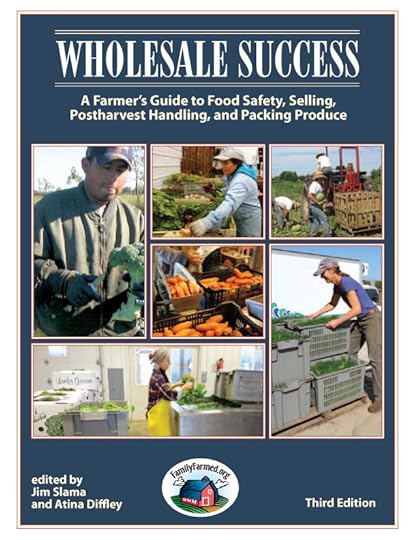 in 29 cities nationally. Thanks goes to the USDA Risk Management Agency for funding these trainings and familyfarmed.org for development and administration. Attendees received a 5 hour training and a copy of “Wholesale Success” , edited by Jim Slama and Atina Diffley. Several of the host partners recorded the trainings and they can now be viewed on-line. Share this link with your vegetable farming friends!
in 29 cities nationally. Thanks goes to the USDA Risk Management Agency for funding these trainings and familyfarmed.org for development and administration. Attendees received a 5 hour training and a copy of “Wholesale Success” , edited by Jim Slama and Atina Diffley. Several of the host partners recorded the trainings and they can now be viewed on-line. Share this link with your vegetable farming friends!
Agriculture Expert, Atina Diffley, Encourages Local Growers to Differentiate Their Product
Market research starts long before the seed is in the ground. Learning how to actively seek buyers, negotiate contracts, and build relationships with wholesalers, consumers, and other farmers is crucial for small and mid-sized farmers to succeed—and it’s not a passive process. A Wholesale Success workshop in Leelanau County gave local food producers an opportunity to learn how to enhance their success in the marketplace. Wholesale Success program trainer Atina Diffley said it’s important for local growers to add value to their products and differentiate themselves from large producers.
Wholesale Success: Farmer Training Videos, Marketing, Postharvest Handling, and Food Safety
Louisville Farm to Table sponsored “Wholesale Success,” a two-day event focused on helping farmers learn important tips of the trade, and how to connect with buyers. Consultant Atina Diffley teaches how to pick and handle produce crops to keep them not only safe, but high quality, and how to keep records of performing these tasks. 4.5 hour video training. To purchase the Familyfarmed.org, Wholesale Success Manual visit Wholesale Success: A Farmer’s Guide to Selling, Post Harvest Handling, and Packing Produce.
Part 1: Marketing
http://cvp.telvue.com/player?id=T01343&video=144248
Part 2: Postharvest Handling and Food Safety
http://cvp.telvue.com/player?id=T01343&video=144295
Part 3: Postharvest Handling and Food Safety
http://cvp.telvue.com/player?id=T01343&video=144363
© Atina Diffley 2013
Subscribe to Atina Diffley’s Blog

March 12, 2013
Busy months behind and ahead.
I’ve been on the road more often than not since December with “Wholesale Success” doing farmer trainings on post harvest handling, food safety, and marketing for  familyfarmed.org in 29 cities nationally. Four trainings left to go in S.C., Al., MS., and IN. I’m enjoying meeting farmers all over the country and deepening my understanding of local and organic market development. The travel has been a little brutal and hasn’t left creative energy for this blog. I’m looking forward to spring, the family garden, starting the next book, and returning to blog writing.
familyfarmed.org in 29 cities nationally. Four trainings left to go in S.C., Al., MS., and IN. I’m enjoying meeting farmers all over the country and deepening my understanding of local and organic market development. The travel has been a little brutal and hasn’t left creative energy for this blog. I’m looking forward to spring, the family garden, starting the next book, and returning to blog writing.
As a family we’re planning our 1st formal “family garden.” We’ve always had a personal “kitchen garden” with herbs and salad greens near the house, but we haven’t had an official “family garden” since 1990 when it was bulldozed in Eagan. We’re really excited about this, three generations in the garden together–planting, weeding, harvesting, and the family meals and canning/freezing activities associated. Each of us will pick our “personal” crop(s) that we’ll give special attention to. I think Chase (9-year old grandson) might pick giant pumpkins (I’ve got the seeds ready for him.) Anya, the newest member of our family (Maize’s wife) is after strawberries and lemon sorrel, Eliza wants kale! The rest I’ll write about here as it unfurls in the garden. Spring will be here soon and as we all know it’s SPRING’S DOING that people plant!
Upcoming Turn Here Sweet Corn Book Events this week.
I hope to see you somewhere soon!
March 14, 2013 6:00 pm –
March 14, 2013 8:00 pm
Buffalo MN || Turn Here Sweet Corn – Community Book Read Club and Talk/Signing
March 15, 2013 7:00 pm –
March 15, 2013 9:00 pm
Mpls. MN || Meet the MN Book Award Finalists || The Loft Literary Center
March 16, 2013 1:00 pm –
March 16, 2013 2:00 pm
Mpls MN || Turn Here Book Reading || Nokomis Library
March 17, 2013 9:45 am –
March 17, 2013 10:45 am
Mpls. MN || Turn Here Sweet Corn book talk || Central Lutheran Church
March 19, 2013 6:30 pm –
March 19, 2013 8:00 pm
Rosemount MN | Turn Here Sweet Corn Author Reading || Public Library

February 17, 2013
Turn Here Sweet Corn Book Events
Two opportunities to hear Atina Diffley read from Turn Here Sweet Corn: Organic Farming Works.
Wednesday February, 20, 7 p.m.
La Crosse WI || Turn Here Sweet Corn Book Reading || Pearl Stre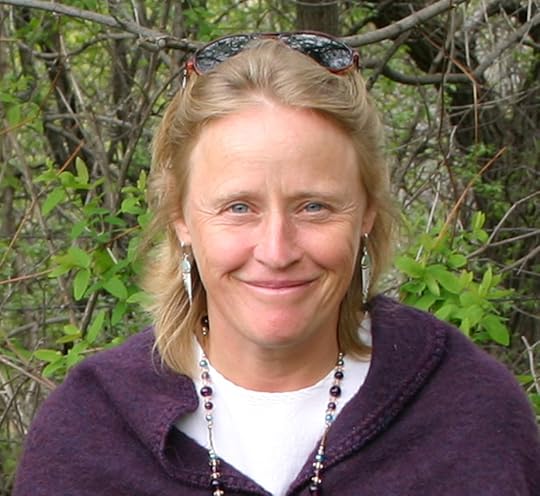 et Books
et Books
Pearl Street Books • 323 Pearl Street, Downtown La Crosse, WI
Atina Diffley book signing @ Pearl Street Books! Sponsored by the People’s Food Co-op. Ms. Diffley will be in La Crosse on February 20, just in time for the largest organic farming conference in the country, and to sign copies of her coveted memoir, Turn Here Sweet Corn: Organic Farming Works. The book is at once “a master class in organic farming, a lesson in entrepreneurship, a love story, and a true-to-life legal thriller.” What more could anybody want? In spite of hardship and challenges, its story is optimistic and inspirational. For more information: Lauri Hoff Lauri.Hoff@pfc.coop
Saturday, February 23, Noon – 1 p.m.
La Crosse WI || Turn Here Sweet Corn: Book Reception with Atina Diffley || MOSES Organic Farming Conference, Ballroom Back Lobby (South Hall)
Turn Here, Sweet Corn: Book Reception with Atina Diffley
Atina Diffley, MOSES board member, will share insights and stories from her engaging memoir, Turn Here Sweet Corn: Organic Farming Works, a finalist for the MN Book Award. Meet the author, enjoy refreshments and pick up a book to have signed.
More Upcoming Turn Here Sweet Corn Book Events
March 10, 2013 11:15 pm – 11:45 pm
Chaska MN || Atina Diffley at Authors at the Arboretum || MN Landscape Arboretum
March 14, 2013 6:00 pm – 8:00 pm
Buffalo MN || Turn Here Sweet Corn – Community Book Read Club and Talk/Signing
March 15, 2013 7:00 pm – 9:00 pm
Mpls. MN || Meet the MN Book Award Finalists || The Loft Literary Center
March 16, 2013 1:00 pm – 2:00 pm
Mpls MN || Turn Here Book Reading || Nokomis Library
March 17, 2013 9:45 am – 10:45 am
Mpls. MN || Turn Here Sweet Corn book talk || Central Lutheran Church
March 19, 2013 6:30 pm – 8:00 pm
Rosemount MN || Turn Here Sweet Corn Author Reading || Public Library
April 6, 2013 10:30 am – 5:00 pm
St Peter MN. || Atina Diffley at Saint Peter Food Co-op and St. PeterReads ||
April 13, 2013 7:00 pm – 9:00 pm
Mpls. MN || 25th Annual Minnesota Book Awards Gala || Hilton Minneapolis
April 17, 2013 6:30 pm – 8:00 pm
St Paul MN. || Turn Here Sweet Corn Book Talk || Highland Park Library
http://atinadiffley.com/events/upcoming/

What Is A Farm? A Synthesis of the Land, People, and Business.
- Atina Diffley's profile
- 12 followers


